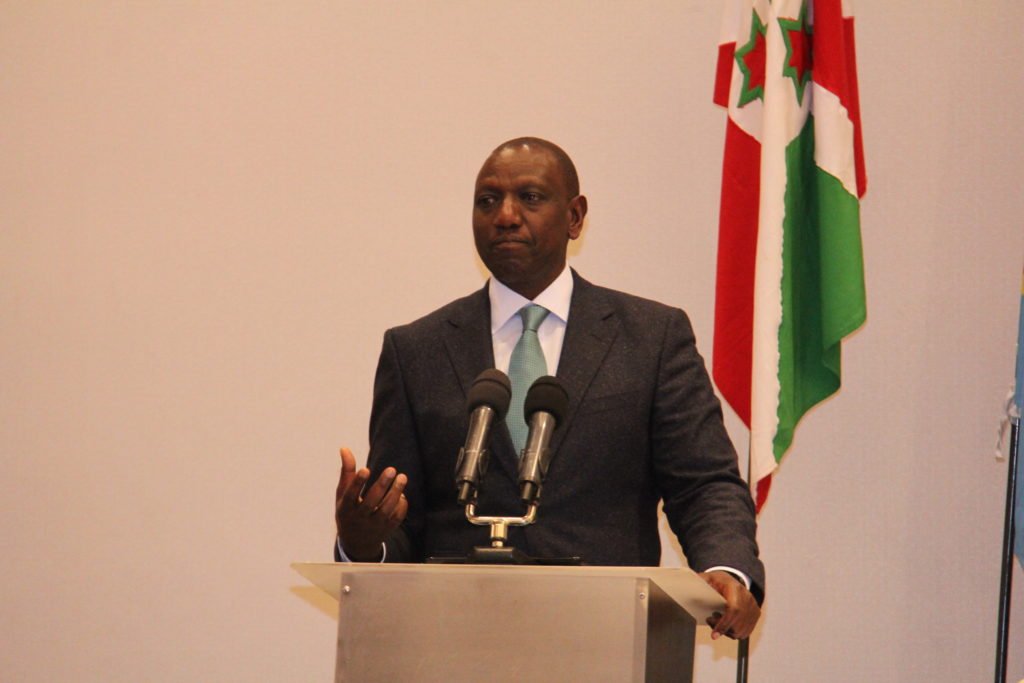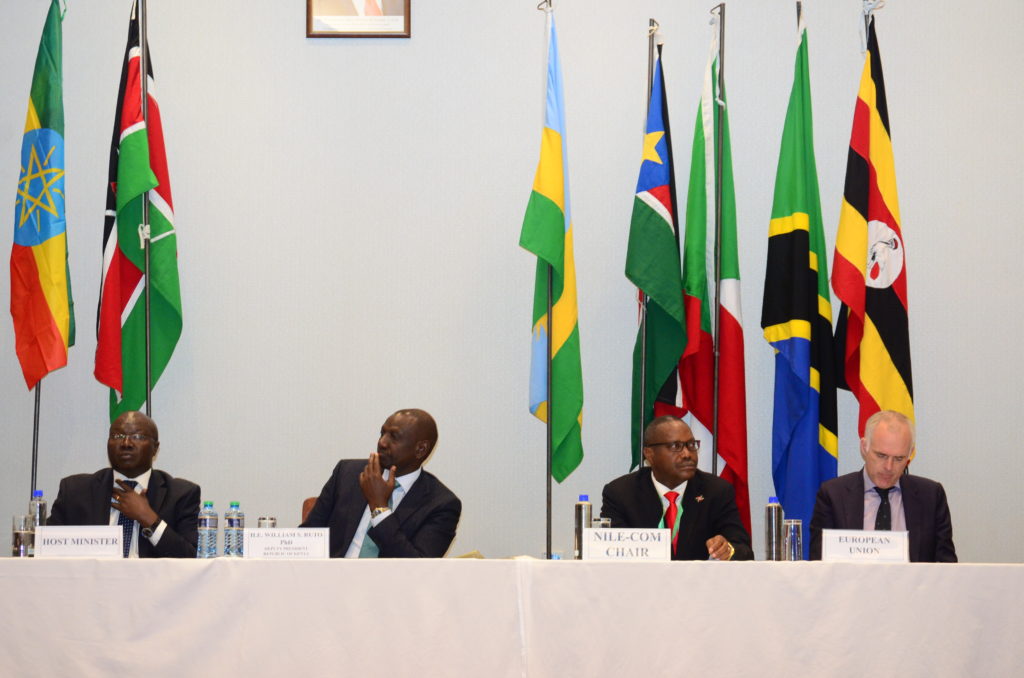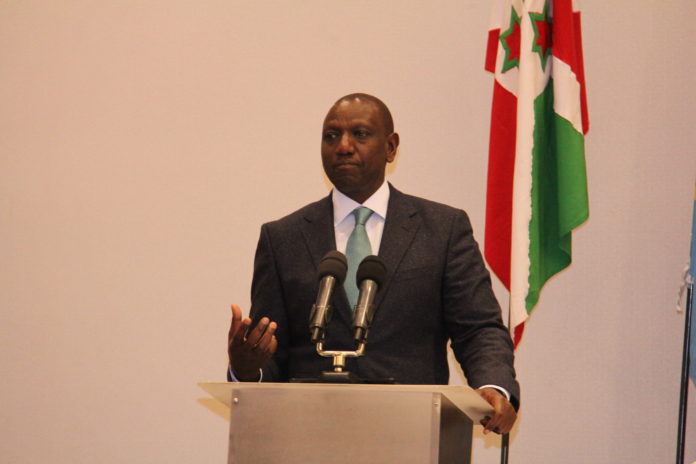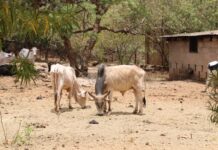|
Getting your Trinity Audio player ready...
|
By Nina Gabrielle Mitch
Kenyan Deputy President, H.E. William Samoei Ruto, launched a USD 5.5 million Nile Basin Regional HydroMet Project which will enable the Member States of the Nile Basin Initiative (NBI) to share reliable data for better monitoring of the Nile’s water resources. The first of its kind, the Nile Basin Regional HydroMet System will inform national planning and evidence-based decision making.
H.E Ruto was speaking during the opening ceremony of the Annual Nile Council of Ministers meetings (Nile-COM), at which Kenya took over the chairmanship of the NBI from Burundi. H.E. Ruto used the opportunity to announce that his country intended to convene a second Nile Basin Heads of State Summit. The inaugural Heads of State Summit was held in June 2017 hosted by Uganda’s President Yoweri Museveni in Entebbe.
The Nile Basin Regional HydroMet Project will be implemented in nine Member States including Burundi, DR Congo, Ethiopia, Kenya, Rwanda, South Sudan, Sudan, Tanzania, and Uganda.

“The HydroMet System is designed to provide more reliable data and information for water resources management including flood disaster preparedness, coordinated management of water storage dams, navigation and improved adaptation to climate change,” Ruto said.
Addressing the gathering was the outgoing Chairperson of the Nile-COM, Dr. Deo-Guide Rurema, who is also Burundi’s Minister of Environment, Agriculture and Livestock, encouraged the Member States to continue working towards finding lasting solutions to the various challenges in the Nile Basin.
“The delay in agreeing and adopting a legal and institutional framework has resulted in delays in the establishment of the permanent Nile River Basin Commission. It is my sincere hope that the Member States will take bold steps towards adopting a common framework that will raise our level of engagement and facilitate harnessing benefits of the cooperation,” he said.
The NBI Secretariat Executive Director, Prof. Seifeldin Hamad Abdalla, noted the need to allow countries to meet the growing demands of water.

“In order to allow countries to meet their growing water demands more efficiently and sustainably, NBI is assisting the Member States to jointly explore options for meeting rising water demands in the Nile Basin,” said Abdalla.
Speaking on behalf of NBI’s Development Partners, H.E Amb. Simon Mordue, Head of Delegation of the European Union in Kenya, noted that the monitoring network will become a key tool to manage the nexus between water security and the need for irrigation and hydropower.
“Ultimately, it will inform the political negotiations over water use and benefit-sharing with reliable, non-biased technical data… The hydrological monitoring system has the potential of becoming the backbone of transboundary water cooperation in the Nile River Basin,” he said.
The Nile Basin Regional HydroMet Project will be implemented over a three-year period (July 2018 – July 2021). The project is implemented with technical and financial support from the European Union and the German federal government, through GIZ.
The ministers also approved the work plan and budget for both the Secretariat based in Entebbe, Uganda and NELSAP-CU, based in Kigali, Rwanda responsible for the preparation of investment projects for the Nile Equatorial Lakes countries.














